Former lawmaker Ronny Tong came under fierce criticism from longtime pro-democracy allies when he left the Civic Party and the legislature in 2015 in an effort to provide a political alternative to Hongkongers.
The pro-democracy camp now regards him as centrist or even pro-establishment, but he has restated his position many times: “I am still a pan-democrat.” Since his political repositioning, Tong has been struggling to garner wide public support. Yet, the ex-lawmaker told HKFP that he stands by his decision and has plans for making his vision a reality.
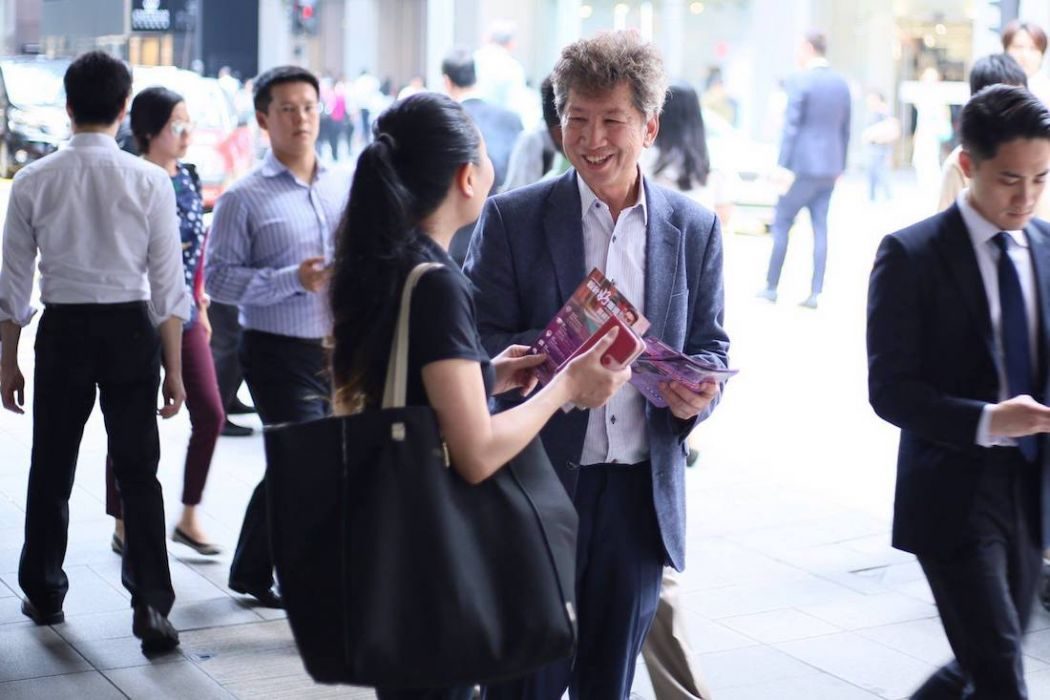
The accidental politician
It may be difficult to imagine that the resolute politician was once reluctant to enter politics.
In 1999, Tong became chairman of the Bar Association. “Even before I sat down, the first thing I said was I would not be political in my chairmanship and I’d concentrate on professional issues. Those are my famous last words, because before I could warm my seats, there was the right of abode debate and [Beijing’s Basic Law] interpretation,” he said.
“I was embroiled in politics afterwards – not that I wanted to, but it’s something I could not escape from.”
Five years later, Tong and other barristers such as Audrey Eu and Alan Leong formed the Article 23 Concern Group, a key organiser behind the famous 500,000-strong July 1 rally in 2003.
The undecided barrister also toyed with the idea of running for the legislature for two years before deciding to go ahead. He was elected in 2004 together with Leong and Eu, with whom he would go on to found the Civic Party two years later.
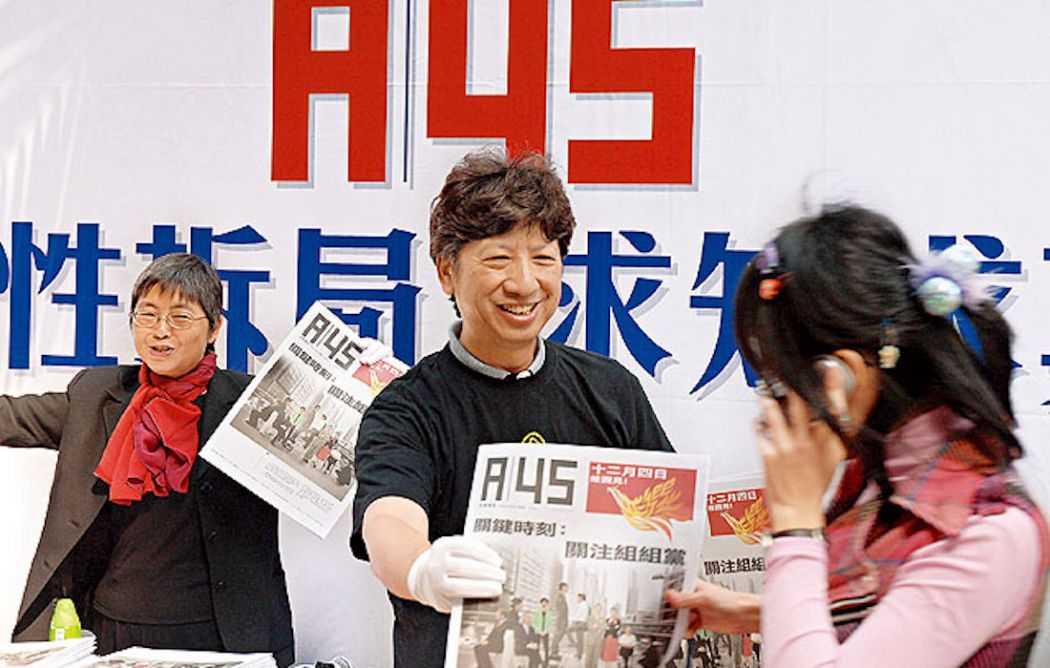
“I was very reluctant to get into politics,” Tong said. “Once I got into it… I want to do the best I can and I want to put in all my efforts to make it work. I’m the sort of person who would not turn away from a problem. I would try to solve it, overcome it. That’s who I am.”
The ‘correct’ path
After a decade in the Civic Party, Tong left the party in 2015 citing ideological differences. He founded the think tank Path of Democracy, convinced that the majority of Hongkongers wanted more politically moderate figures.
Last September, Tong fielded two young candidates in the Legislative Council election. They lost by a large margin, securing less than 1 per cent of votes in the geographical constituency – compared to nearly 1o per cent gained by the Civic Party.
Overall, the pro-democracy and localist camps won more than 55 per cent of geographical constituency votes, while Tong’s group and another moderate, “middle in the road” party Third Side obtained only 1.5 per cent of the votes.

But Tong did not seem dispirited by September’s defeat. Instead, he is adamant about changing the city’s political culture in the hope that the public will, in turn, influence the stance of the political parties.
“It seems to me that political parties – especially the pan-democrats – are very much being led by the people rather than leading the people,” he said. “So if they are willing to be led by the people, then obviously what I need to do is to change the viewpoint of the people in order to change the approach of the pan-democrats.”
“I’m quite confident that the path I’ve chosen is the correct one in these very peculiar circumstances.”

Nonetheless, Tong recognised the difficulty in selling his vision: “When I started out by saying that there ought to be a third alternative to either the pro-government faction or pan-democrats, I meant that exactly. It is not a slogan as such. The pro-government people lack independence and vision; the pan-democrats lack the will to negotiate, to communicate [and] to solve problems.”
“So I have to work on my own to try to put forward strategies and proposal[s] which I think would work. This obviously does not attract approval from either side.”
Populism and democracy
What, then, is Tong’s vision of democracy?
“I believe Hong Kong is a well-educated, intelligent community. I think we deserve better, honestly,” he said. “We deserve quality democracy, not the kind of democracy that you see in other countries where democracy is hijacked by populism.”
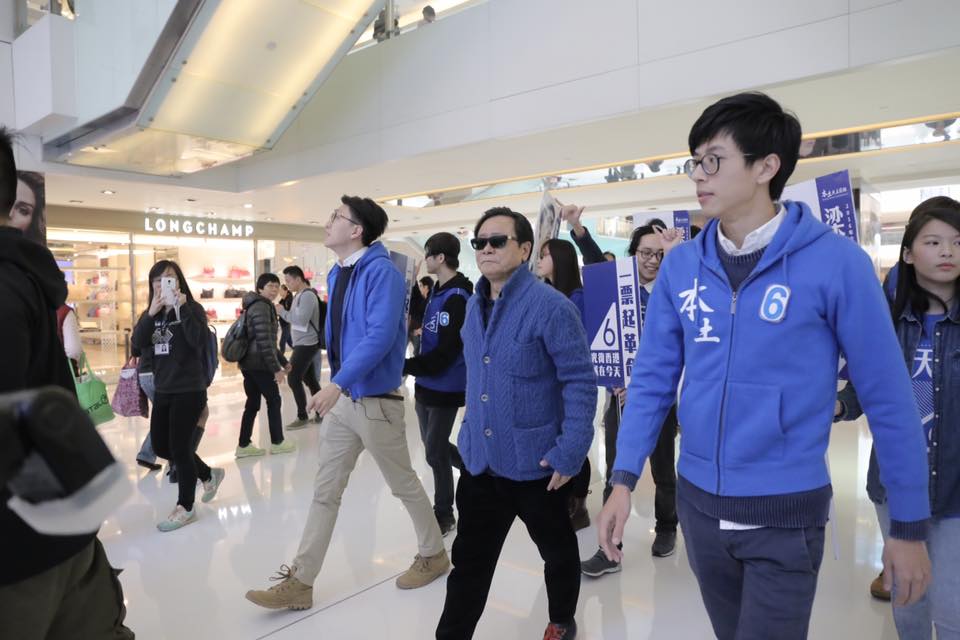
“I’m fully dedicated to improving the quality of democracy, and that is more important at this moment than actually achieving democracy right now,” he added.
“Because even if we were to achieve democracy right now, if the kind of democracy we had is sure to be hijacked by populism and of low quality, then I’m not sure this is good for Hong Kong.”
The flaws of the pan-democrats
To Tong, a weakness of the pan-democrats is their low tolerance for differing views. In his later years, in the Civic Party, Tong disagreed with the group’s strategies on multiple occasions – such as the joint campaign with other pan-democrats against the government’s electoral reform proposal in 2015 – calling them too “confrontational.”

Another example is the recent oath row. Tong frequently spoke to the media about his legal opinion on the topic, but his view – despite correctly predicting the rulings – was often unpopular among the pan-democrats.
In response to criticism, Tong said: “You may disagree with my view… But if that’s the true position, I don’t see how you can complain unless you are very stubborn and refuse to correct your own mistakes.”
“If you don’t wish to address your own mistakes and improve the quality of the [democracy] movement, that is no good for the movement itself, because it tends to alienate people who can see things a little bit clearer than those in the mix,” he said.
“To protect your own ego by saying ‘I’m above criticism, therefore anybody who criticises me is a bad guy’ – I think – is an ostrich approach and I don’t think politicians should be like that.”

Tong reiterated that he regards himself as a part of the pan-democrats, and that constructive criticism against allies is beneficial for the city’s democracy movement.
Beijing and the pan-democrats
If the pan-democrats were less headstrong, perhaps dialogue and some kind of consensus with the Chinese government would be possible, Tong suggested.
He believes direct communication between Beijing and the pan-democrats – rather than via the China Liaison Office – would be more effective in resolving their differences. It could be a conference or an informal channel through which all parties could meet regularly to review the difficulties in implementing the One Country, Two Systems policy, Tong said.
The powerful China Liaison Office – Beijing’s organ in Hong Kong – has been criticised for interfering in local politics. Its director Zhang Xiaoming is also widely considered to be a close ally of incumbent leader Leung Chun-ying.

Tong refrained from criticising the Liaison Office, but he said it suffers from a “fundamental difficulty.”
“Their difficulty has always been that they have been very close to pro-government political parties in Hong Kong and they’ve always been very much involved with various elections, and that very function itself basically alienated the pan-democrats,” he said. “In fact, I feel that there is an invisible wall between the two which I think is not easy to overcome.”
Beijing and Hong Kong
Unlike some pro-democracy politicians, Tong is allowed into China and has been invited to meet with Beijing officials. He did that twice last year – first as an opinion leader in April, and second as a member of the Bar Association in October.
Tong said the officials he had met seemed to be “very much in touch with what is happening” in Hong Kong and “know what exactly everyone has said or done.”
“However, they look at various issues from very different perspectives as we do. They have very different priorities, so although they look at the same facts as we do, they often come down to a somewhat different conclusion and therefore a different strategy,” he said. “That is something we have to accept.”
He suggested that politicians need to persuade the Chinese government to take into account the sentiment of Hong Kong people, and approach issues from the Hong Kong perspective.
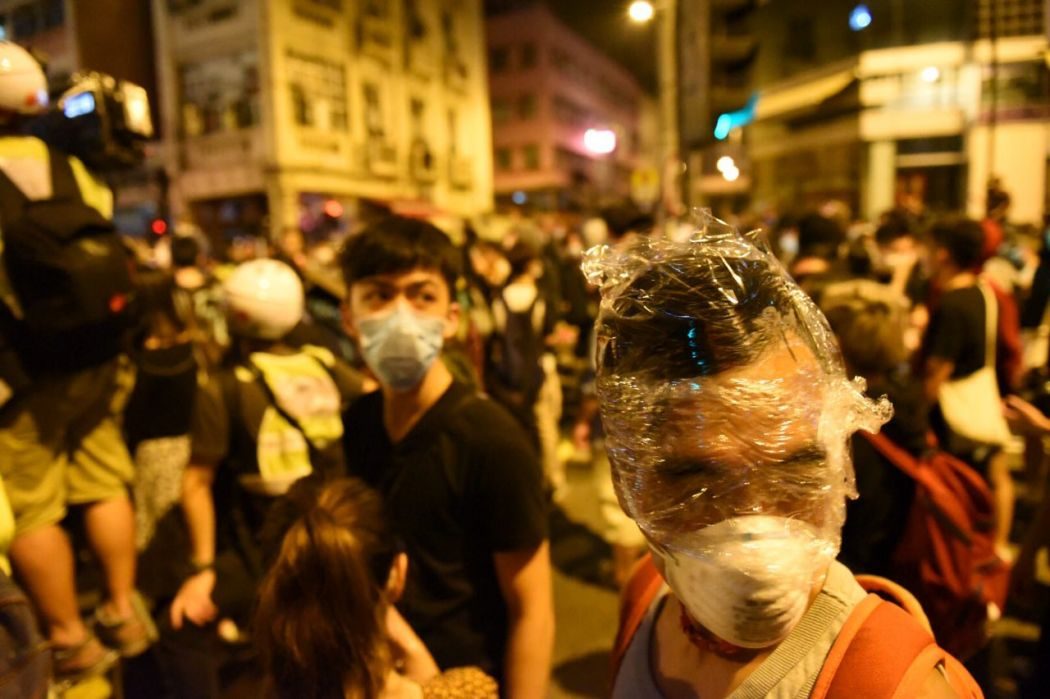
“These matters take time. After all, I’m not a member of a pro-government political party. I don’t see them a lot. I certainly don’t get to see officials whom a lot of us describe as hardliners. The people I see regularly are the most liberal officials in Beijing for obvious reasons,” he said.
“I have no opportunities to develop any kind of relationship with hardliners, and therefore it would be difficult for me to persuade them.”
Chief executive election
Similarly, Tong said it would be difficult for him to promote his ideas to chief executive candidates, after losing in November’s election of the Election Committee to two alliances of pro-democracy lawyers, who took all 30 seats designated to the legal sector. Among the elected lawyers was Tong’s former party colleague Alan Leong.
“I was very disappointed. I thought that the legal sector needs somebody who would carry a rational voice,” Tong said. “I probably would do a lot more than those who became elected in terms of being able to communicate with various possible candidates with Beijing and the SAR government.”
“The fact that I lost meant that the pan-democrats would only have probably one voice, which is not necessarily a constructive voice. So that is disappointing, not simply on a personal level but also from the point of view of Hong Kong as a whole.”
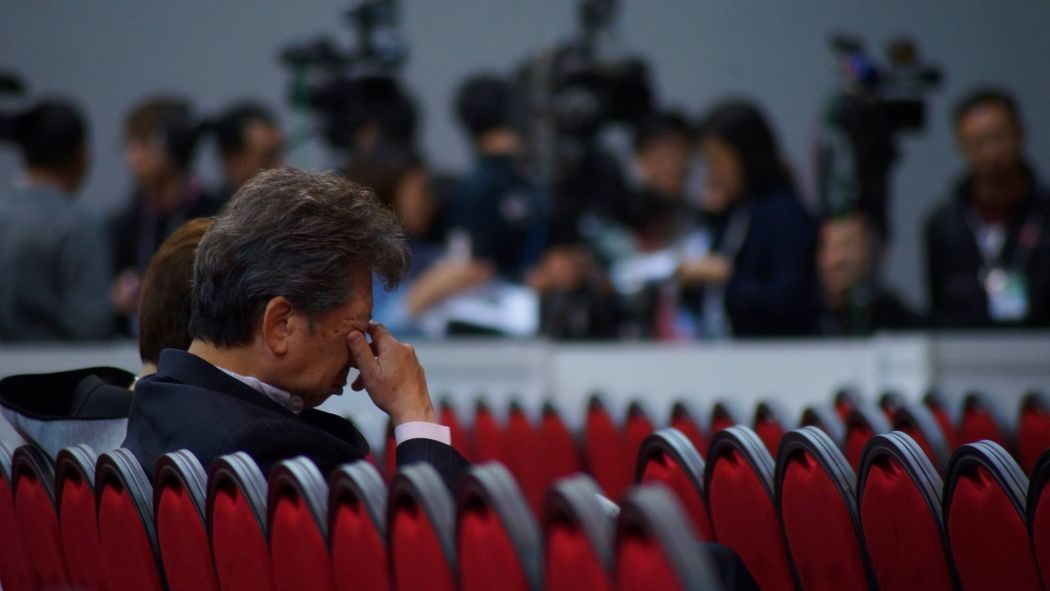
Tong said he had met with all declared and potential chief executive candidates – including Finance Secretary John Tsang and Chief Secretary Carrie Lam – but he was not impressed by any of them.
Despite being in a less influential position, Tong said he would try to meet with the candidates again to discuss top priorities for the city’s next leader.
The first on Tong’s list of priority issues is to mend the rift in society. “That means you need to build an inclusive administration. You need to set out certain mechanism by which Beijing and Hong Kong can build a better relationship,” he said.
Another issue is to restart the electoral reform process. The controversial reform proposal put forward by Beijing and the Hong Kong government in 2014 sparked the 79-day Occupy protests, which contributed to the fragmentisation of the pro-democracy camp.
“But unless you can mend the rift in the community or improve the relationship between Beijing and Hong Kong, there is no hope to achieve kind of general consensus as regards political reform,” Tong said.

On this point, Tong criticised chief executive candidate Woo Kwok-hing of lacking strategies in achieving his goal of restarting the political reform process: “To simply say that ‘oh I would do something to mend the rift, I would try to restart political reform’ – is but a slogan. It’s not a concrete proposal.”
The way forward
After quitting his lawmaker job in 2015, Tong said he had no intention to return to the Legislative Council.
“At that time, I thought [quitting] was the only honourable thing to do. I have no intention to go back to the LegCo. In any event, I have tried for 11 years and I couldn’t influence a lot of the pan-democrats,” he said.
“I don’t believe even if I were to return to the LegCo, I could do any better than what I did in the last 11 years. So I have come around to the view that my focus should be on the community and not on LegCo.”
He said he wants to focus on training young people interested in a career in politics – such as starting a school – especially seeing the lack of political knowledge in those working at the legislature.
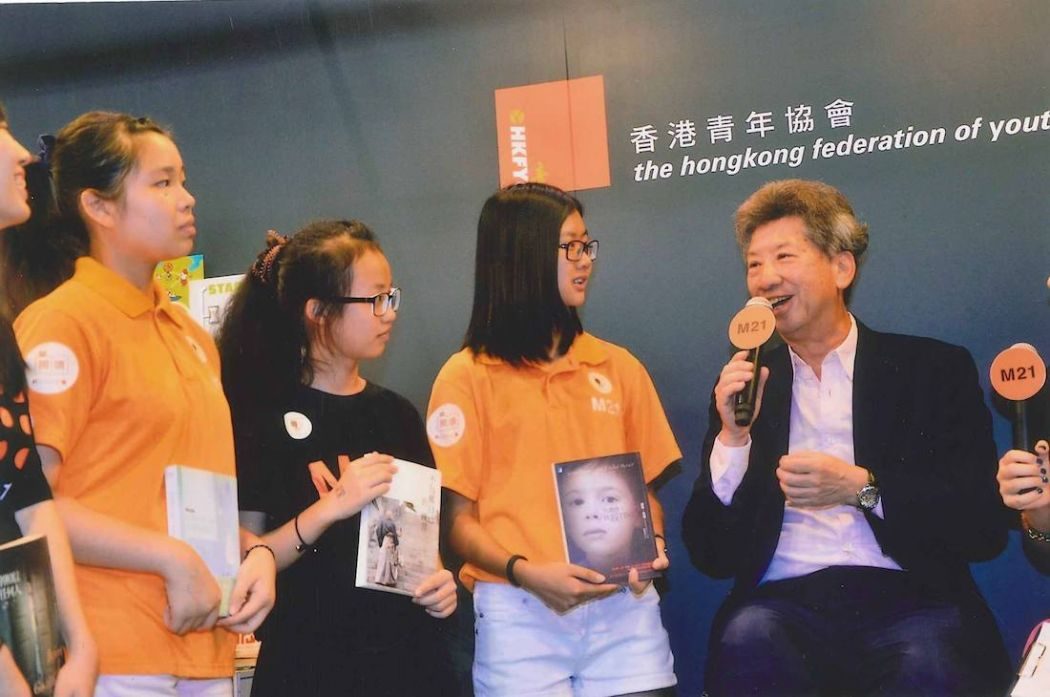
“People who go into politics don’t know the very basic things about politics. I never studied politics myself… but when I became chairman of the Bar and when I went into LegCo, I started to study politics,” he said. “But I find that people in the LegCo nowadays don’t read up, so they don’t quite understand something very basic like the separation of powers.”
“I feel that is not conducive to improve the quality of democracy in Hong Kong.”
Tong’s political career came with a cost. He said he had lost his clients – including “every single tycoon” in Hong Kong – after becoming a lawmaker.
But the unfazed barrister said he had never regretted going into politics: “It’s not a sacrifice, it is a choice. If I choose to do this, it’s not a matter of sacrificing money or opportunities. It’s just that I prefer to do this.”
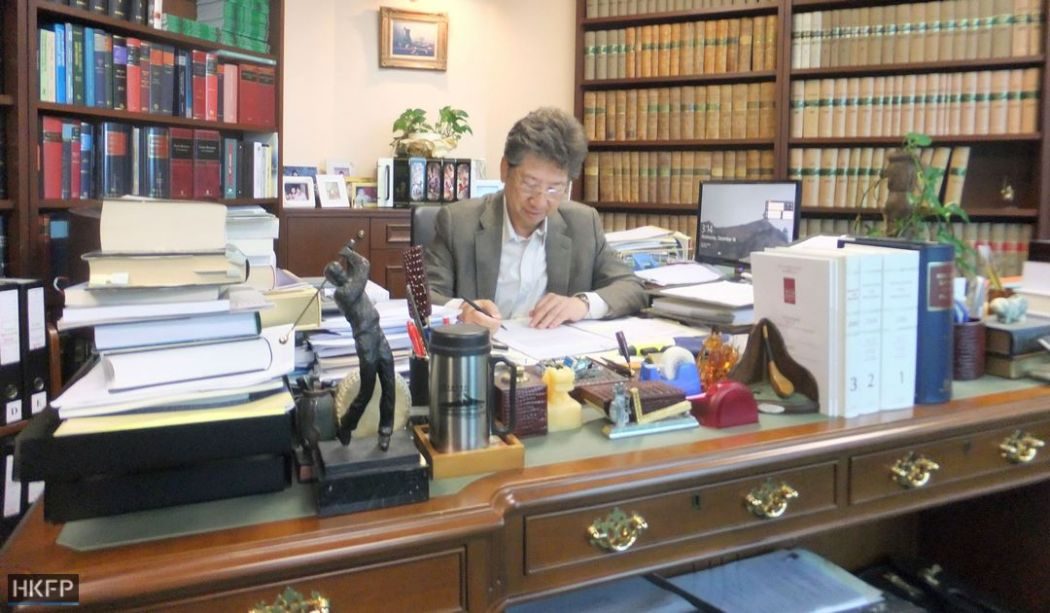
Tong, who came from a poor family and had to fund his education with scholarships and part-time jobs – from being a private tutor to playing in rock bands in nightclubs – said he did not mind earning less in order to contribute to society as a politician.
“The very fact that I’m now sitting here as senior counsel is a living proof of social mobility. Everything that you see here comes from this community,” he said. “If I were to pay back a few of my years, it’s not too much, is it?”
